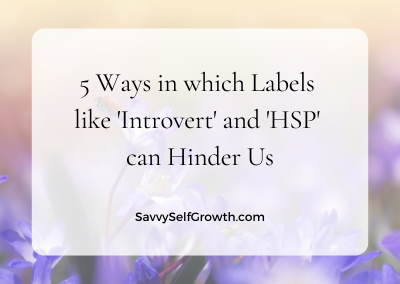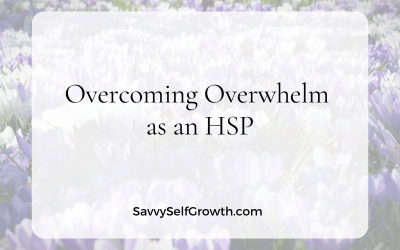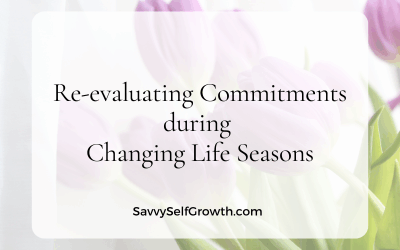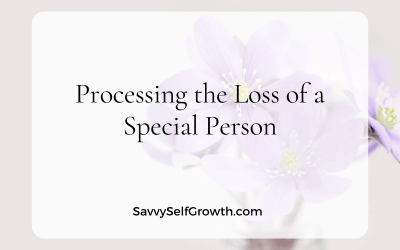In a previous article, I looked at 5 ways in which labels can be helpful. For a balanced view, I want to look at how labels can also be unhelpful and hinder our journey.
One: Stereotyping and Oversimplification
Something I can’t stand when someone mentions their problem is when another person pipes up with, “Just do this one thing and it will be sorted.”
Really?!
That completely negates the complexity of a human being, their history and background, their beliefs, the reasons they developed that problem (usually a necessary strategy), and other complex layers they’ve not considered.
In the same way, a label like ‘introvert’ can do that. It makes us think that “We ARE this one thing”, where nothing could be further from the truth. We consist of so many complex layers, human and spiritual.
Focusing on this aspect of myself, like “I’m an introvert, ” disregards all the other parts of me. You might never guess that I truly LOVE spending time with people if I say, “I’m an introvert.” It can lead to misunderstandings, assumptions, and oversimplification.
Here are some stereotypes I’ve heard about introverts:
- They’re socially awkward and/or shy, and they struggle in social situations.
- They’re anti-social or unfriendly.
- A funny one: They don’t make friends. An extrovert sees them, likes them, and adopts them. Haha!😊
Some stereotypes I’ve heard about HSPs:
- They’re overly emotional or fragile.
- They’re always crying, have mood swings or meltdowns.
- They’re reclusive, avoiding social interactions and stimuli.
- They’re withdrawn and isolate themselves to protect their sensitivity.
- They can’t deal with rejection or criticism.
If you think these thoughts, I’d encourage you to learn more about introversion or HSP traits before you fall in those traps.
Two: Limiting beliefs
When we embrace a label, we risk buying into a limit that doesn’t necessarily have to be so.
For instance: If I fully buy into the HSP label, I could start reinforcing the idea for myself that “I’m so sensitive” and should avoid certain things, or that my body can’t deal with them. Or if I buy into “Introverts need solitude”, I could limit my interactions with the people I love and adore — and not give myself a chance to fully explore the depth, breadth, and width of my true capacity.
I can remember the first time I had 5 client calls in one day, AND felt energized at the end of it. Before that, I believed that to be impossible for me. “I can’t have more than 3 calls”, “I need silence after every call” and “I can’t have as many appointments as extroverts” were firmly implanted in my mind. Thank goodness I was willing to explore those limits for myself.
I can’t say I’d love 5 calls every day, but at the same time, I don’t want limits or ideas about what’s possible for introverts or HSPs, to define me.
Some limiting beliefs I’ve heard from introverts:
- I’m not good at socialising (thus, they retreat from it even more)
- I’ll always stand in an extrovert’s shadow (leading to not even trying or feeling resentful)
- I won’t be promoted because I’m too quiet (thus, not learning to speak up)
- I need to change myself to fit in (thus, not being authentic or letting their full self shine)
- There is something wrong with me (thus, hiding, excluding themselves, isolating)
- I can’t handle loud or unfamiliar situations (therefore limiting growth, expansion, options, joy)
Limiting beliefs I’ve heard from HSPs:
- I’m too sensitive for this world (leading to hiding, inadequacy, isolation, not making the difference they could make)
- I’m a burden to others (leading to guilt, self-blame, hiding, isolation)
- I can’t handle criticism or conflict (leading to avoiding disagreement, not growing, not learning to be assertive and stand up for their needs, running away from conflict)
- I’m limited in what I can achieve (leading to self-imposed barriers to grow and explore what’s possible for them, avoiding challenges or opportunities)
The wonderful thing: these are limiting beliefs, not factual truths. They may have felt factual for a person because they’ve experienced the evidence in their own life. But if it was fact, it would have been true for every introvert or HSP on the planet.
We can effectively and safely work with EFT to start deleting and transforming these limiting beliefs. They’re spoilsports, false news, and unnecessary to carry around with us if we want fulfilling, self-actualised, meaningful lives.
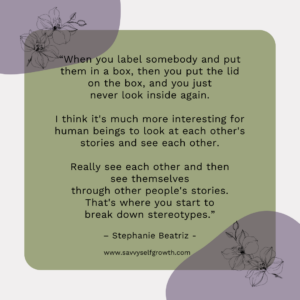
Three: Stigmatisation and discrimination
I wrote earlier about the perception of others when we refer to ourselves with a label. Other people don’t always have a positive association with the labels that are meaningful to us.
If I say “I’m an introvert” in a large group of people, expecting their understanding, I could be disappointed, rejected, ridiculed because of their perception of an introvert.
Many people wrongly assume that introversion means someone is shy or people-averse. You should see a bunch of introverts together when they discuss a topic they’re passionate about!
I don’t want someone to unfairly make assumptions about me because of their limited understanding of a label. And yes, unfortunately that happens.
Four: Confirmation bias and avoidance of growth
Confirmation bias is the tendency to interpret new evidence as confirmation of our own existing beliefs or theories.
So when we adopt a label like ‘introversion’, it’s human and normal to interpret our experiences through the lens of this label.
For instance: I may be tired from a lack of sleep for a few nights. When I also have 2 meetings on that day, I would likely feel exhausted afterwards. It would be a great example of confirmation bias to say “You see! I can only manage 1 meeting a day, I’m an introvert/HSP and need to limit my social interactions, they drain me.”
The truth is — a few nights of better sleep will help my overall resources and energy to increase, and I could easily handle 4 meetings a day.
After that, I could avoid ever scheduling more than 1 meeting a day again — and in that way, limit my own growth and expansion.
Hanging on tightly to a label can reinforce the fixed ideas we have about it, and reinforce how we are limited because of it. “I can’t do this thing. My excuse is I’m an HSP”.
Do we really want to be limited like this?
Five: Exclusion and lack of nuance
Labels can easily overlook the diversity of human and individual experiences. It lacks nuance, too.
Not every introvert neatly fits all the descriptions and tendencies I’ve seen listed in many books, articles and websites. In fact, a part of me gets annoyed when I see a blanket generalisation like ‘Introverts are…’ with a list of descriptions. I want to shout “No, NOT all introverts ARE!”
Not every HSP has all the traits of HSP-ness either. There’re nuances and degrees we miss when we lump all things into a neat little container of “THIS is what introversion or sensitivity is.”
Plus… so many people do not identify with labels like introvert/extrovert. (Fortunately, there is something in the middle — an ambivert!)
I’ve seen so many labels create divisions and ‘us versus them’ mentality. Black/white are labels. Clever/dumb, intellectual, slim, skinny, brainy, fit, lazy. All labels that include some and exclude others, creating a ‘you don’t belong with us’ kind of feeling.
So… are labels good or bad?
There are so many new and old labels that I can hardly keep up. I’m thinking of ADHD, autism, dyslexia, neurodiversity, many for gender. And if we don’t, we can get another label like ‘discrimination’, ‘politically incorrect’ (PC), ‘insensitive’, or ‘disrespectful’.
(Notice — I’m not saying any of those labels are right or wrong. All of the above apply to them too — help AND hinder!)
I have to be painfully honest (big apology if I’m stepping on toes) and admit when I see a social media post about someone newly diagnosed with autism, ADHD or neurodiversity, a mean, judgy part (only a part!) of me wants to roll my eyes. Those posts can come across as, “I’m special! More special than all you ‘normal’ people.”
My guess (saying this with a huge grin)is that hundreds of thousands of others (including you) could think the same about the way I proudly wear my ‘introversion’ and ‘HSP’ labels, and I get that.
“You think you’re so special because you’re sensitive?!” <eyeroll>
This takes us right back to one of my first points.
What we do with a label
When we have been struggling along, feeling different, it can be the biggest relief to find out that a set of behaviours or characteristics have a name (label). That means I’m not that different, I’m not alone, and I’m part of a group. There are others like me, I’m no longer isolated and alone, I feel understood and validated, I’ve found my tribe, I’ll be loved and accepted just as I am.
We feel safer when our ‘condition’ has a name. It’s now a known thing. There is more safety in certainty.
Every human needs acceptance, love and to feel included — that’s how we survive, and it’s programmed into our nervous system. To be loved as part of a tribe is one of the 6 basic human needs, together with needing to feel unique / like an individual.
However, I believe what we DO with that label afterwards is what determines its usefulness.
If I justify my perceived limitations or behaviours with my label, it’s probably less useful.
While if I use the label to continue exploring awareness of myself and how I behave — to grow and expand my options and choices, it might be more useful.
This was a rich topic for me to explore by writing about it. Thank you for reading. For more on my thoughts about introverstion and sensitivity, go here.

